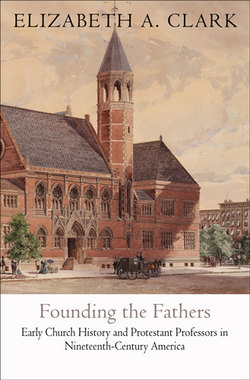Читать книгу Founding the Fathers - Elizabeth A. Clark - Страница 15
На сайте Литреса книга снята с продажи.
ОглавлениеCHAPTER 4
History and Church History
It is sometimes said, that of all historical studies that of Ecclesiastical History is the most repulsive.
—Arthur Penrhyn Stanley (1862)
The winning of ecclesiastical history for science by Protestant scholarship has been one of the triumphs of the nineteenth century.
—G. P. Gooch (1913)
Historical Studiesin Nineteenth-Century America
History as a distinctive academic subject, we shall shortly see, had a slow and uncertain entry to American academia.1 Hence it is not surprising that its incorporation into the seminary curriculum was similarly halting. The spirit of evangelical piety that so colored its teaching renders dubious the above claim that “science”—in the German sense of Wissenschaft—had “triumphed.” Although most of the American professors here considered had imbibed some newer, “German” (largely Romantic and Hegelian) approaches to history, these they interpreted through the lens of God’s providential design. Moreover, older assumptions lingered on: that history contributed to the formation of character and good citizenship, that it provided useful warnings against possible future missteps.
In this chapter, I first detail the development of historical instruction in the American academy and seminary,2 then turn to discuss how German approaches to history inflected the teaching of early church history in the United States. In the next chapter, I elaborate how the contrasting themes of historical decline and development co-inhabited—somewhat uneasily—the professors’ historical imaginaries. The professors, we shall see, straddled older and newer approaches to church history in ways that often appear quite contradictory.
History in the Academy
History as a subject was largely nonexistent in American college curricula until the later nineteenth century. Often relegated to an hour or so on Saturdays, instruction in history was organized around recitation from a textbook.3 No advanced training was required: any teacher (indeed, any “cultivated gentleman”4) might listen to students recite.5 As late as the 1880s, some college teachers considered a professorship in history a wasteful luxury; the subject, they argued, could easily be handled by an instructor in another field, such as classics.6
